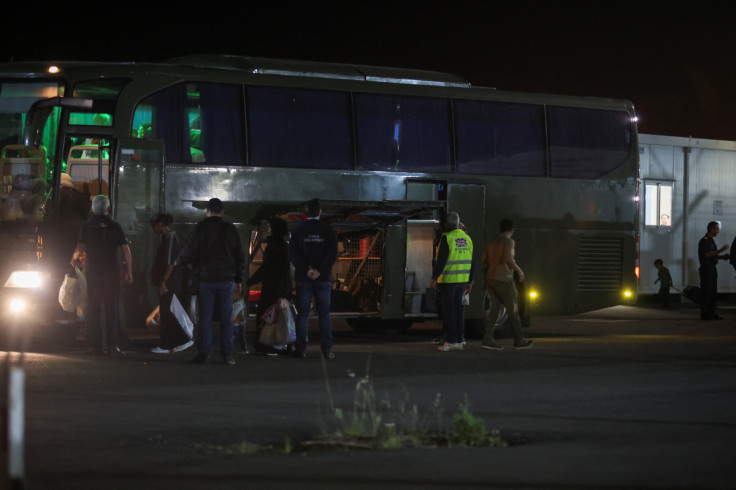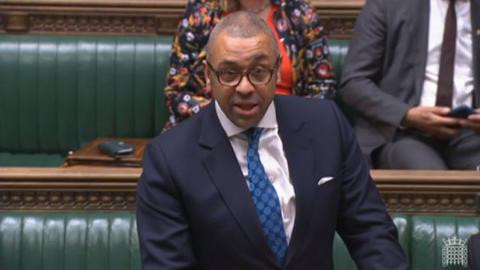Crisis worsens in Sudan as thousands are evacuated in airport chaos
A volatile political situation spilt over into a power struggle between the main factions of the military regime who currently wield control of the Republic.

Over the past two weeks, Sudan has been in turmoil. A volatile political situation spilt over into a brutal power struggle between the two main factions of the military regime who currently wield control of the Republic.
Tension had been building for months between Sudan's army and the Rapid Support Forces (RSF), which together toppled a civilian government in an October 2021 coup.
The friction was brought to a head by an internationally-backed plan to launch a new transition with civilian parties. A final deal was due to be signed earlier in April, on the fourth anniversary of the overthrow of long-ruling autocrat Omar al-Bashir in a popular uprising.
The prospect of a transition to a democratic system had raised hopes that Sudan and its population of 46 million could emerge from decades of autocracy, internal conflict and economic isolation under Bashir.
However, two aspects of the plan proved troubling for both factions: the timetable for the RSF to be integrated into the regular armed forces and when the army would be formally placed under civilian oversight.
When fighting broke out on 15 April, both sides blamed the other for provoking the violence. According to the World Health Organisation, more than 450 people have now been killed in the conflict and another 4,000 wounded.
The speed at which the crisis unfolded resulted in thousands of foreigners, such as diplomats and aid workers, being stranded in a nation sliding towards all-out civil war.

As of today, at least 20,000 people have found refuge at a makeshift camp in the Chadian border village of Koufroun, according to the United Nations refugee agency UNCHR, which manages their influx along with other UN agencies.
Since the outbreak of the fighting, the UK has helped broker numerous ceasefires to allow British nationals to be safely evacuated.
British families that were initially caught up in the conflict had accused the UK government of "abandoning" them, despite reassurances from prime minister Rishi Sunak and the Foreign Office that talks were underway to bring them home.
The UK has so far been able to airlift 536 citizens to safety, with foreign secretary James Cleverly now urging British nationals who may be "hesitant" or "weighing up their options" to make their way to Wadi Seidna, where there are "planes and capacity" in place to get people out.
A fragile cease-fire has been renewed for another 72 hours after Cleverly appealed to the sides involved to protect the people of the East African country.
"This is a monumental tragedy, one with the potential to destabilise not just Sudan, but the wider region," he told Parliament last week. "It is therefore in our interests, and more importantly in the interests of the people of Sudan to secure a peaceful and sustainable settlement as quickly as possible," he urged.
Alicia Kearns, chair of the Commons Foreign Affairs Committee, told BBC Radio 4's Today programme that the number of British people hoping to be evacuated could total 3,000 to 4,000 plus. She added that those on the ground were living in "abject fear", had little food and water left and even been reduced to killing their pets in some cases "because they're worried they're going to starve".
Despite the series of ceasefire agreements, both sides have accused each other of breaking the peace and continuing to fight.
Today, British nationals trying to flee Sudan were given until noon to reach an airport to be processed for an additional UK flight out of the conflict zone as rescue efforts shift to the east of the country.
However, it is likely that many will remain trapped in the country before the conflict resumes. According to UN emergency relief coordinator Martin Griffiths, the situation has now reached "breaking point".
Massive looting of humanitarian offices and warehouses had "depleted most of our supplies. We are exploring urgent ways to bring in and distribute additional supplies," he said.
The "obvious solution" would be to stop the fighting, he added. "But the prospects for negotiations have appeared bleak."
The army leader, Gen Abdel Fattah al-Burhan, has said he would never sit down with the RSF chief, Gen Mohamed Hamdan Dagalo, known as Hemedti, who in turn said he would talk only after the army ceased hostilities.
The UN refugee agency released new data on Saturday that showed about 6,000 people, most of them women, had fled the fighting to neighbouring Central African Republic over the past two weeks.
Central African Republic, which lies to the southwest of Sudan, is one of the poorest countries in the world.
"The number is made up of 70 per cent women, 15 per cent girls, 10 per cent men and 400 repatriated," the UNHCR said on Saturday in a tweet, the authenticity of which was confirmed on Sunday by one of the agency's Central Africa representatives.
The conflict has worsened an already troubling humanitarian situation in a vulnerable and poverty-stricken nation. A third of Sudan's 46 million people were already in need of humanitarian aid before the fighting began.
Now, despite the attempts of the UK and US to play peace-maker, an all-out civil war appears the most likely outcome. There is no doubt that the consequences of this for the Sudanese people would be devastating.
© Copyright IBTimes 2025. All rights reserved.






















